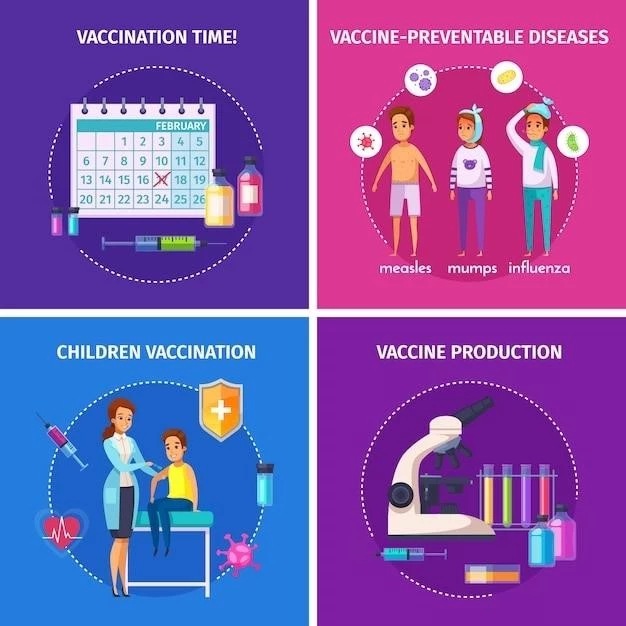Overview of Syphilis
Syphilis is a sexually transmitted infection caused by the bacterium Treponema pallidum subspecies pallidum․ The signs and symptoms of syphilis vary depending on the stage it presents․ If left untreated, syphilis can lead to serious health issues affecting various organs․
Definition and Causes
Syphilis is a sexually transmitted infection caused by the bacterium Treponema pallidum subspecies pallidum․ The disease progresses through primary, secondary, latent, and tertiary stages, each with distinct symptoms and complications․ Syphilis can be transmitted through sexual contact or from an infected mother to her baby during pregnancy․

Symptoms and Stages of Syphilis
Syphilis progresses through primary, secondary, latent, and tertiary stages․ Symptoms vary depending on the stage it presents․ Recognizing the signs and seeking treatment promptly is crucial․
Syphilis progresses through four stages⁚ primary, secondary, latent, and tertiary․ Each stage presents different symptoms and risks․ It is vital to understand the progression of syphilis to seek appropriate care and treatment․
Primary, Secondary, Latent, and Tertiary Stages
Syphilis progresses through primary, secondary, latent, and tertiary stages, each with unique symptoms and potential complications․ Understanding the progression of the disease is crucial for timely diagnosis and treatment․
Blood, Fluid, and Cerebrospinal Fluid Samples
Diagnosing syphilis involves testing blood, fluid, or cerebrospinal fluid samples for the presence of the bacterium․ Early detection is key to effective treatment․ Consult a healthcare provider for proper diagnosis and management․
Treatment Options
Syphilis can be effectively treated with penicillin․ It is crucial to follow healthcare providers’ recommendations and complete the prescribed treatment to ensure the infection is eradicated․
Penicillin as the Preferred Treatment
Penicillin is the preferred treatment for all stages of syphilis; It is essential to adhere to the prescribed treatment regimen and consult healthcare providers for proper management․ Early treatment is crucial to prevent complications and spread of the infection․
Prevention and Control
Preventing syphilis involves practicing safe sex, using condoms, and being aware of your partners’ sexual history․ Partner notification is essential to prevent further spread of the infection․ Consult with healthcare providers for guidance on safe sex practices and prevention strategies․
Safe Sex Practices and Partner Notification
Preventing syphilis involves practicing safe sex, using condoms, and getting tested regularly․ If diagnosed, informing partners is critical to prevent further spread of the infection․ Consult healthcare providers for guidance on safe sex practices, testing, and partner notification․
Complications and Adverse Outcomes
Untreated syphilis can lead to severe complications affecting the cardiovascular system, causing gummatous growths, and impacting the nervous system․ Early diagnosis and treatment are essential to prevent adverse outcomes․
Cardiovascular, Gummatous, and Neurologic Complications
Untreated syphilis can lead to severe complications affecting the cardiovascular system, including aortitis and coronary artery disease, gummatous growths in various tissues, and neurologic complications like meningitis and stroke․ Early diagnosis and treatment are crucial to prevent these adverse outcomes․ Consult healthcare providers for proper management and care․

Impact on Pregnancy and Congenital Syphilis
Syphilis can have serious consequences during pregnancy, including the risk of transmitting the infection to the unborn baby, leading to congenital syphilis․ It is crucial for pregnant individuals to receive appropriate prenatal care and testing to prevent adverse outcomes․ Consult healthcare providers for guidance on managing syphilis during pregnancy and protecting the baby’s health․
Risks to Unborn Babies and Prevention Strategies
Untreated syphilis poses significant risks to unborn babies, leading to congenital syphilis with serious health implications․ Prenatal care, early detection, and appropriate treatment are crucial to prevent transmission to the baby; Consult healthcare providers for guidance on prevention strategies during pregnancy and safeguarding the health of the infant․
Global Health Organizations’ Perspectives
Learn about syphilis, a preventable and curable bacterial infection, from global health organizations like WHO and CDC․ Get insights into the diagnosis, treatment, and prevention strategies for syphilis recommended by these organizations․
WHO and CDC Guidelines and Recommendations
Stay informed about syphilis prevention, diagnosis, and treatment through guidelines provided by global health organizations like the World Health Organization (WHO) and the Centers for Disease Control and Prevention (CDC)․ Follow their recommendations to effectively manage and prevent syphilis infections․ Consult healthcare providers for personalized advice on syphilis care based on these guidelines․
